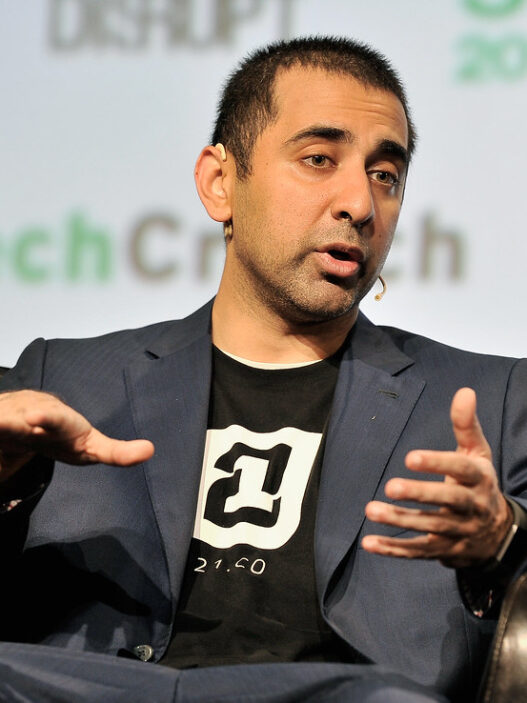In July 2025, an unusual name took over tech forums, startup Slack channels, and social media: Soham Parekh, a 27-year-old Indian software engineer who allegedly held up to six full-time jobs simultaneously at various startups—many of them venture-backed and remote-first. While some criticized him as a manipulative opportunist, others saw a product of the times: an overworked coder navigating financial pressures and a fractured employment system.
Was this fraud, or was it simply a radical interpretation of what modern remote work makes possible?
This report takes a neutral look at Parekh’s background, how the events unfolded, where he worked, and the larger implications for hiring, ethics, and work culture in the digital age.
A Promising Background
Soham Parekh hails from Mumbai, India, and is by all accounts a technically competent software engineer.
- Undergraduate Education: B.E. in Computer Engineering from University of Mumbai (2016–2020)
- Graduate Education: M.S. in Computer Science from Georgia Institute of Technology (2020–2022)
His resume, as shared in screenshots by Silicon Valley entrepreneurs, shows experience across multiple high-growth companies. According to these records, he worked at:
| Company | Role | Time Period |
|---|---|---|
| Synthesia | Software Engineer | 2021–2022 |
| Alan AI | Founding Engineer | 2021 |
| GitHub (MLH Fellowship) | Open Source Contributor | 2020 |
| Union.ai | Fullstack Engineer | 2023–2024 |
| Dynamo AI | Senior Software Engineer | 2024–2025 |
| Lindy | Software Engineer | Brief stint |
| Fleet AI | Software Engineer | Brief stint |
| Antimetal | Engineer | Brief stint |
| Warp | Engineering Intern | Short-term |
Multiple of these companies are Y Combinator-backed and well-known in AI or developer tooling ecosystems.
What Happened: The Discovery
The situation came to light on July 2, 2025, when Suhail Doshi, founder of Mixpanel and Playground AI, published a detailed post on X (formerly Twitter):
“There is a scammer working at multiple YC-backed startups at once. Resume is fake. GitHub activity forged. Companies beware.”
That “scammer,” according to Doshi, was Soham Parekh.
Following this post, several founders and investors chimed in, verifying that Parekh had briefly worked with their companies. Most cited unusually short tenures (2–6 months), vanishing communication, missed deadlines, and strange scheduling conflicts.
How He Managed It: The Methodology
While the exact operational details remain speculative, several overlapping patterns emerged from founder testimonies and technical audit trails:
- Multiple Laptops
Startups sent laptops to a U.S.-based address (a relative’s), each dedicated to a specific company. - Mouse Jigglers & Status Tools
Devices or software were used to simulate activity and stay online during working hours. - Blocked Calendars & Non-Appearance in Video Calls
Parekh would block entire hours on his work calendar or claim technical issues to avoid Zoom/Meet calls. - Code Reuse & Generalization
Some engineers allege Parekh recycled components or wrote generalized libraries he could quickly adapt across jobs. - No Offshore Outsourcing or LLM Help
Parekh denied using AI to generate code or outsourcing work to others. In an interview, he insisted he “personally wrote every line.” - Compartmentalized Slack & Email Use
Different email accounts, browser profiles, and Slack logins allowed him to switch contexts.
The Compensation Question
Estimates suggest Parekh was earning between ₹6.6 crore to ₹8.3 crore per year in Indian currency across all roles, making approximately:
- Each of Soham Parekh’s jobs is estimated to have paid between ₹99.6 lakh and ₹1.66 crore per year.
- Paid monthly, in U.S. dollars, via W-2 or contractor terms
- Payments routed through U.S. bank accounts
These roles were all full-time, with contractual clauses prohibiting dual employment without disclosure.
Feedback From Employers
Positive Early Impressions:
- Most founders who hired him said Parekh interviewed extremely well.
- He had strong GitHub projects and appeared competent.
- Some noted good initial code contributions and clear understanding of system architecture.
Negative Experiences Later:
- Inconsistent availability: He often missed standups or “disappeared” for hours.
- Missed deadlines: Projects stalled without explanation.
- Unreachable at key moments: Stakeholders struggled to coordinate.
- Short stints: Often left before performance reviews or extended onboarding.
Notable Responses:
- Lindy’s CEO: “Smart guy, but something felt off. Always too busy to explain delays.”
- Fleet AI: “We terminated his access after realizing he had other full-time jobs. Disappointed, but we also missed red flags.”
- Antimetal: “He wrote decent code but wasn’t aligned with team velocity or vision.”
What Soham Said
In a candid interview on the podcast TBPN (The Blind Product Network), Parekh admitted to juggling multiple jobs.
“It wasn’t about greed. I needed to support myself financially. I wasn’t trying to scam anyone. I worked 140-hour weeks.”
He acknowledged the difficulty of maintaining multiple jobs but denied misrepresenting his qualifications. He also messaged one founder after the fallout:
“Have I completely ruined my career? I genuinely want to make amends.”
Two Perspectives: Hero or Hustler?
The Sympathetic View:
- Broken work culture: In an era of layoffs and job instability, Parekh adapted in an extreme but understandable way.
- Remote loopholes: Companies gave full autonomy but didn’t build oversight or mentorship into their workflows.
- Financial pressure: As an immigrant with student loans and living costs, he felt compelled to take risks.
The Critical View:
- Deception: Parekh knowingly violated employment contracts and trust.
- Team impact: His behavior affected real deliverables, teammates, and project timelines.
- Sets a bad precedent: Normalizing multi-job deception could erode trust in the remote ecosystem.
Broader Reflections
This case has catalyzed new conversations across the startup ecosystem:
| Issue | Reaction |
|---|---|
| Remote Work Oversight | Companies now audit background checks more rigorously |
| Moonlighting Policies | Employers are updating contracts and monitoring tools |
| Global Hiring Ethics | Questions about cross-border payroll, verification, and accountability are rising |
| Resumé Verification | LinkedIn is no longer trusted at face value—GitHub activity is being double-checked for timestamps and depth |
Conclusion: Neither Villain Nor Victim
Soham Parekh is not an anomaly—he’s a signal. A symbol of how technology, globalization, and hustle culture have collided to produce new gray zones of work, ethics, and survival.
Whether he rebuilds his career or fades into infamy is yet to be seen. But the industry now has to contend with the world he revealed: one where trust must be earned in code, not contracts—and where ambition, if unchecked, can short-circuit even the smartest systems.


















